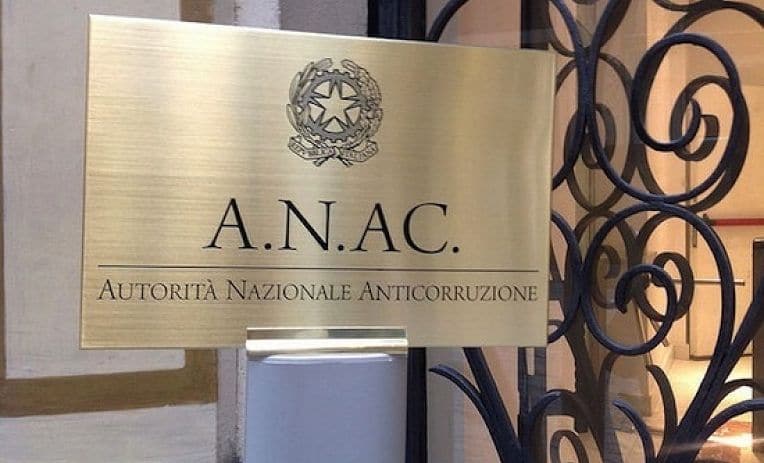We receive and publish
I write about the article “ANAC. Anti-corruption officers convicted or under judicial investigation", Published on fedaiisf.it and with your signature, to represent you that, as specified in the clarification signed by the President of the Canton, published in the paper version of yesterday's edition of Corriere della Sera, in the newspaper site and onhome page of the Authority itself, those responsible for the prevention of corruption are not employees of Anac nor can they be traced back to it in any way, since they are managers appointed by the public administrations to which they belong and to which they are required to answer for their work.
It follows that defining them as "ANAC Managers", as already denied, stating that "if this is ANAC, it is not at all surprising that Italy is the most corrupt country in Europe" and above all that the journalistic investigation "reveals certain aspects of the ANAC”, is erroneous and seriously damaging to the Authority's image.
I therefore hereby ask you, as I did yesterday through the "Contacts" section of the site, to remove as soon as possible from the aforementioned article, in the title and in the body of the text, any reference to the National Anti-Corruption Authority that is not factually found.
Sure of your cooperation, I wish you a good day.
Sincerely
Ed.: Prendiamo volentieri atto delle precisazioni e dell’estraneità dell’ANAC nei casi indicati dalla Gabanelli sul Corriere della Sera. Concordiamo pienamente col Presidente Cantone quando afferma che “However, it is fair to remember that there are at least 15,000 administrations required to appoint a PRC.
Abbiamo pertanto “corretto” le imprecisioni riportate.
Ciò nonostante il nostro giudizio sul Codice ANAC nei confronti degli ISF non cambia. Noi avevamo chiesto un incontro con ANAC per spiegare la nostra posizione e per aiutare la stessa ANAC ad adottare linee guida anche più incisive in merito alla prevenzione della corruzione nella farmaceutica. La nostra fiducia nell’ANAC era totale.
Quando incontrammo alcuni “consiglieri” dell’ANAC, li avvisammo, dicendo loro che con quelle linee guida per la prevenzione della corruzione bloccavano gli ISF e spianavano la strada a tutta una serie di figure non meglio identificate e di cui non conoscevano nemmeno l’esistenza. Non si sono nemmeno peritati di capire com’è fatto un settore che stavano cercando di regolamentare.
Si pensi che quelle linee guida hanno prodotto risultati aberranti. Per esempio all’Ospedale di Parma per poter vedere un medico si doveva inoltrare una domanda scritta che doveva essere valutata da ben sette uffici diversi delle diverse gerarchie ospedaliere. Impossibile prevedere i tempi e programmare qualsisi attività lavorativa per ottenere poi, chissà quando, un appuntamento in un orario in cui il medico era già uscito dall’ospedale per fine servizio. Una beffa! E via libera ai corruttori.
We think these measures are erroneous and seriously harmful to us, to our dignity and to our work.
It is necessary to think of the rules “without the prejudice of the crime. The rules are made to measure for a country and honest businesses, they are not made thinking only of the corrupt”.
